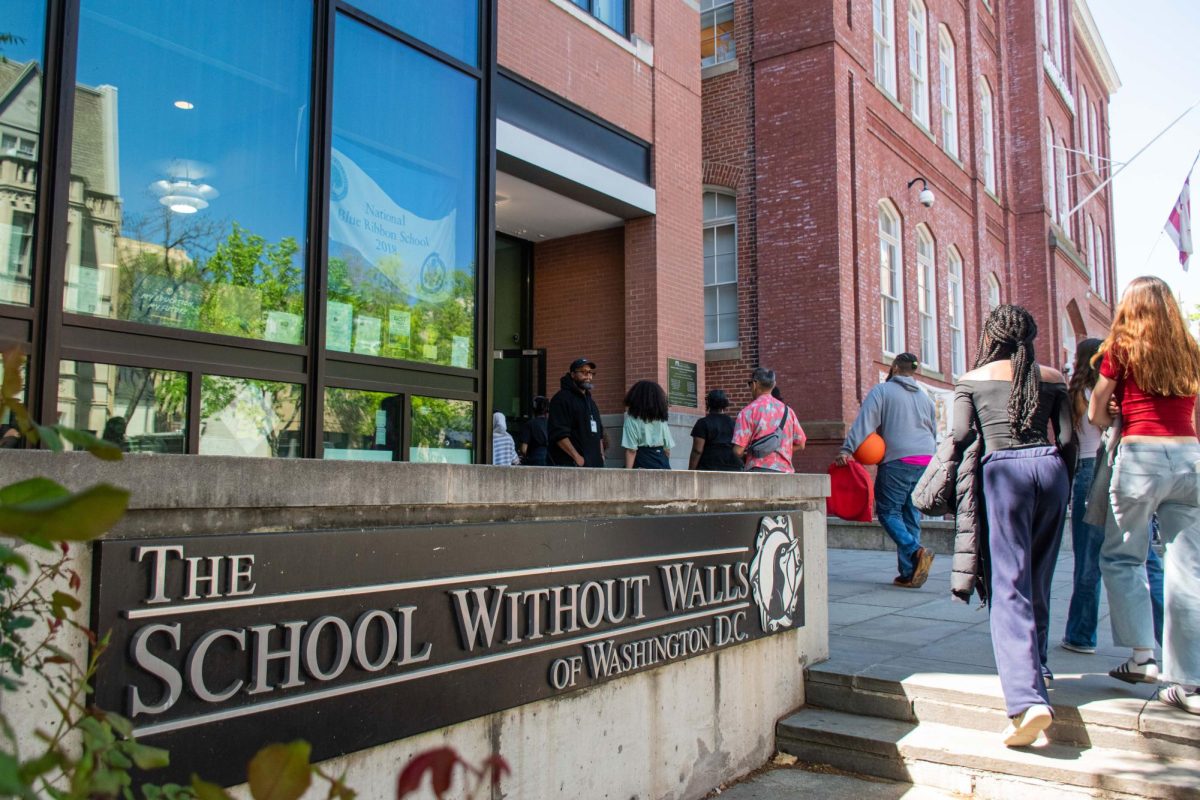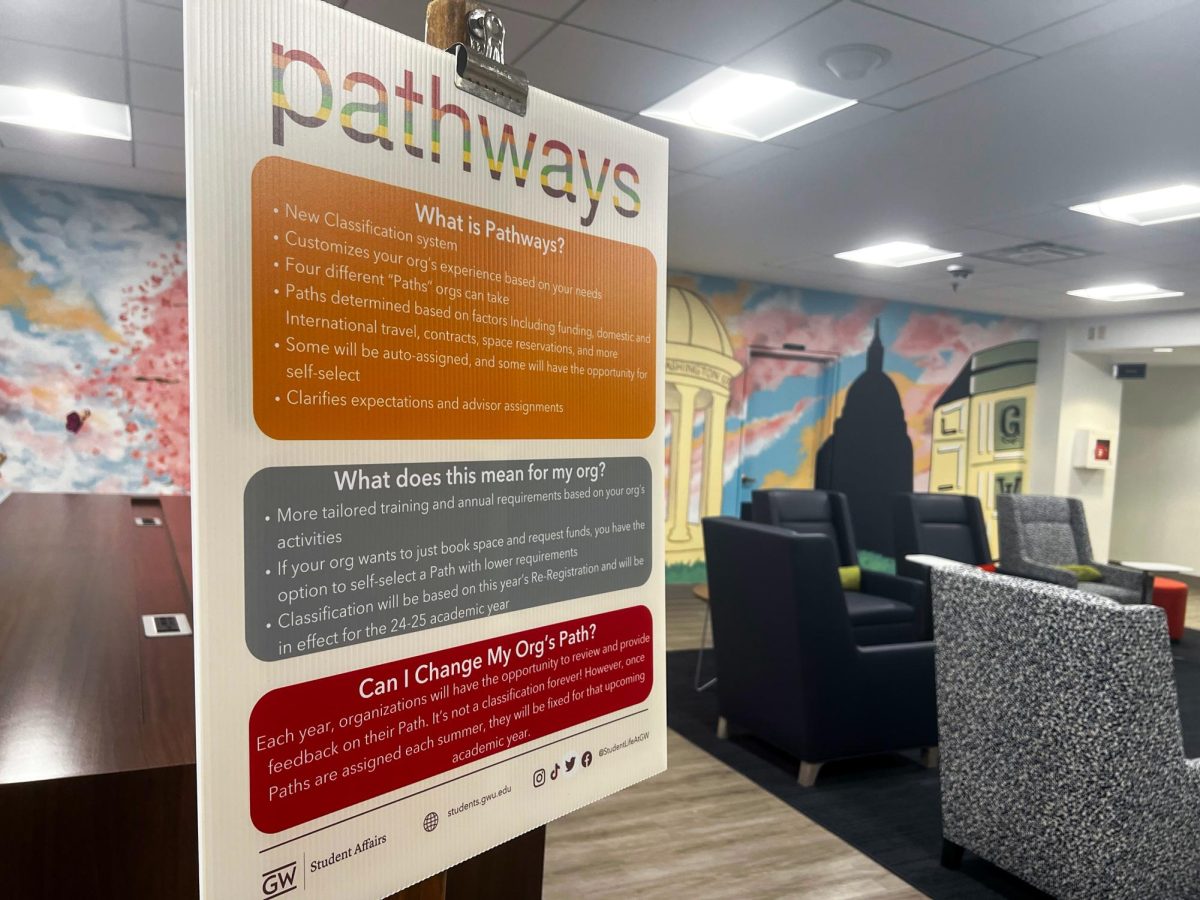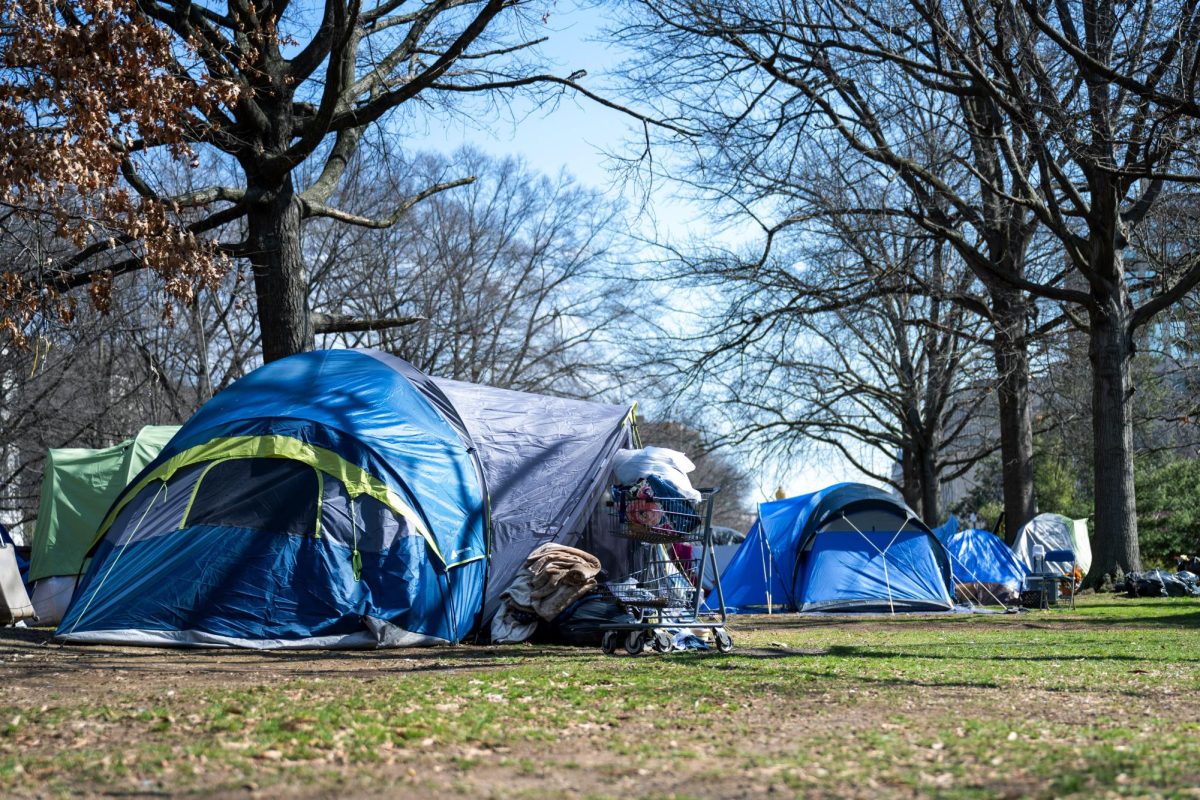School Without Walls High School faces budget gaps in the 2024-25 fiscal year that students said will spell the loss of its theater program and likely its Chinese program.
The proposed 2024-25 budget shows that SWW’s overall funding from the D.C. government increased, but SWW’s Local School Advisory Team — a group of parents, teachers, school staff and community members — said in a Feb. 29 letter to SWW families that increased personnel costs, inflation and the loss of pandemic-era federal funding created a $235,000 funding gap that will result in the loss of two teaching positions. Students and other community members have rallied in opposition to the proposed budget shortfall over the past two months, signing a petition and testifying to the D.C. Council to push to reallocate funds toward D.C. public schools.
The Home and School Association notified students of the deficit via newsletter Feb. 29. The letter states that the administration “advocated through the budget process to address this deficit.” A request from Principal Sylvia Isaac to restore the funding “was denied” by D.C. Public Schools, the letter reads.
Two weeks later, students and alumni published a petition, which has garnered close to 900 signatures and urged D.C. officials to protect the teachers. The Foggy Bottom and West End Advisory Neighborhood Commission voted last week to send a resolution to the D.C. Council, asking them to fill the school’s budget gap.
Lea Zaslavsky, SWW’s only theater teacher and the department director, said Isaac notified her six weeks ago that her position would be cut, ending the theater program at the school.
“My reaction was one of disbelief at first, but then I had no other recourse but to accept it,” Zaslavsky said in an email. “It felt personal of course, because it cannot help but feel that way when what I bring to the school community in terms of qualifications was not ever considered.”
The LSAT said administration was “left with no choice but to cut positions and other expenses” after D.C. Public Schools declined to fill the school’s budget gap that D.C. officials proposed in a letter to SWW families. Zaslavsky said the LSAT determined cuts based on which departments had the lowest enrollment this academic year.
Zaslavsky said she disagreed with the LSAT’s method used to decide what cuts to make. Zaslavsky said this academic year was the first year her theater classes had “low enrollment” because the time slot for her course conflicted with courses required for graduation.
“I am a teacher who works before and after contract hours on committees, clubs, dances and more to make students enjoy their high school experience and to know that, as a teacher, I could be eliminated without any consideration to what I offer as a professional to the school hurts,” Zaslavsky said. “These decisions should not just be based on class size, or if the class is a graduation requirement because school is about more than that.”
Zaslavsky said she established SWW’s theater program eight years ago when she was hired, which has since put on four plays and three musicals with at least 60 students participating in each. She said she supports students voicing their opposition to the budget cuts but that she did not ask anyone to speak out and has not been involved in any of their pushback efforts.
“I had hoped this would be the school I would retire from in 10 years, but sadly, that will not be the case,” Zaslavsky said.
D.C. Public Schools and the Office of the Deputy Mayor for Education did not return requests for comment.
Senior Hugo Rosen, the SWW student council president, said the school’s administration made the decision to eliminate two teaching positions in conjunction with the LSAT. He said administrators and the advisory team decided to cut two elective classes with the lowest enrollment — theater and Chinese — which he said would deprive students of educational opportunities.
Rosen said he organized the student testimony delivered to the D.C. Committee of the Whole, which supervises DCPS’ budget. Last month, the LSAT issued a “call to action” along with instructions and tips for students to testify. The team gave students recommendations to articulate arguments opposing the funding cuts, including specific data points regarding enrollment, like that DCPS has projected SWW enrollment to increase from 597 to 609 next year.
“The budget cut for Walls and also budget cuts for DCPS schools around the schools is depriving kids of their right to a public education because every teacher interacts with hundreds of students a day and makes an impact on hundreds of students,” Rosen said. “I think if the D.C. Council wants to cut money, they should look elsewhere because cutting teachers is not fair to students.”
On April 4, Rosen and 30 other students testified separately in multiple statements to the D.C. Council, describing the ways at-risk programs have improved SWW and their fears of what will happen if they are lost, like no longer being able to participate in plays or musicals. One student testified to say the ability to learn Mandarin Chinese is valuable to students because it is the most commonly spoken language in the world.
In SWW sophomore Jett Morad-McCoy’s testimony, he said he felt out of place on his first day as a freshman and found support from Zaslavsky, or Ms. Z.
SWW junior Anna Meyer said she recognizes that while SWW faces an uphill battle with the funding gap, it is worth remembering the notion of a “shared sacrifice,” as District leaders have proposed impending budget cuts to about 80 public schools in the District. She said SWW is a relatively privileged school and that the losses are still shouldered disproportionately on historically disadvantaged communities, like Anacostia High School, that would see their purchasing power shrink at nearly twice the rate of SWW.
SWW is the No. 1 rated high school in the District, according to U.S. News & World Report.
D.C. Council Chairman Phil Mendelson openly criticized the mayor’s budget, calling the proposal — which he said would require an estimated 80 out of 117 schools to make layoffs — “counterproductive” and “harmful.”
“It is my intention to restore as much, if not all, of the funding that has been taken away from schools in the mayor’s proposed budget,” Mendelson said.
Mendelson said he cannot commit to restoring funding for one school, like SWW. He said the Schools First Law, which the council approved in 2022, allows officials to calculate each school’s budget using a funding formula.
“I am going to do everything I can to make every school whole as provided in the Schools First Law,” Mendelson said. “And that should include School Without Walls.”
Avajane Lei, a senior at SWW, created a petition to try and “keep educational staff” in the face of budget cuts. The petition garnered around just under 900 signatures as of Monday morning, eclipsing the school’s 2025 enrollment of about 600 students.
Lei said she was “outraged” when she learned about the proposed budget cuts because the theater program and the Chinese department are “very close” to her. She said she is currently participating in the school’s production of “Rent” and has been enrolled in Chinese courses since her freshman year.
“Finding out that teachers who had such a big influence on my education, the possibility that they would be not longer part of our community was very shocking for me,” Lei said.
Ella Mitchell contributed reporting.





